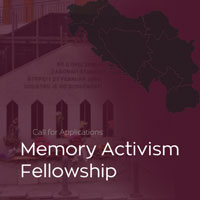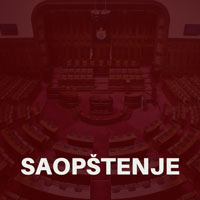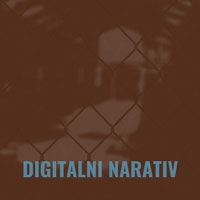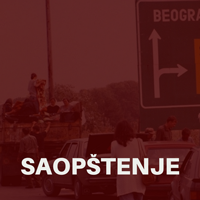(srpski) Izrečena 91 godina zatvora za zločin u Štrpcima

Sorry, this entry is only available in srpski.


Sorry, this entry is only available in srpski.

 Since 1992, Humanitarian Law Center has worked on documenting war crimes and human rights violations committed in the former Yugoslavia, focusing on the victims and their stories. The organisation advocates for a comprehensive and multifaceted transitional justice process. The work of the HLC is based on three pillars: documentation, justice and memory, with the Memory Activism Program as central for the organisation’s future. With its Memory Activism Program, the Humanitarian Law Center commemorates victims through various initiatives, including public debates, documentary films and digital memory activism on social media and other digital memory practices. In addition to commemorating victims of war crimes and mass human rights violations during the 1990s wars, the Memory Program challenges and confronts the dominant revisionist narratives about the wars, provides informal education, disseminates the judicially determined facts about the wars engagingly, using different media formats. Furthermore, the program conducts policy-oriented research and analysis and commentary of official memory politics in the region.
Since 1992, Humanitarian Law Center has worked on documenting war crimes and human rights violations committed in the former Yugoslavia, focusing on the victims and their stories. The organisation advocates for a comprehensive and multifaceted transitional justice process. The work of the HLC is based on three pillars: documentation, justice and memory, with the Memory Activism Program as central for the organisation’s future. With its Memory Activism Program, the Humanitarian Law Center commemorates victims through various initiatives, including public debates, documentary films and digital memory activism on social media and other digital memory practices. In addition to commemorating victims of war crimes and mass human rights violations during the 1990s wars, the Memory Program challenges and confronts the dominant revisionist narratives about the wars, provides informal education, disseminates the judicially determined facts about the wars engagingly, using different media formats. Furthermore, the program conducts policy-oriented research and analysis and commentary of official memory politics in the region.

Sorry, this entry is only available in srpski.

Sorry, this entry is only available in srpski.

Sorry, this entry is only available in srpski.

Sorry, this entry is only available in srpski.

Sorry, this entry is only available in srpski.